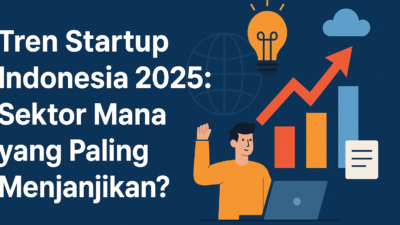
Have you ever found yourself thinking, “I’m just not good at this” or “I’ll never be able to learn that”? If so, you’ve brushed shoulders with what psychologists call a fixed mindset. On the flip side, ever told yourself, “I’m not there yet, but I can improve”? That’s a growth mindset. The way you frame challenges and setbacks can make all the difference between staying stuck and thriving. Let’s explore why a growth mindset is the secret sauce to achieving success and living a fulfilling life—and how you can cultivate one for yourself.
Fixed Mindset vs. Growth Mindset: What’s the Difference?
The concept comes from Carol Dweck, a Stanford psychologist, who discovered that people generally fall into two categories when it comes to how they view their abilities:
- Fixed Mindset: Belief that abilities, talents, and intelligence are static traits. People with this mindset often avoid challenges because they fear failure will expose their limitations.
- Example: “I’m bad at math, so there’s no point in trying.”
- Growth Mindset: Belief that abilities can be developed through dedication, effort, and learning. People with this mindset see challenges as opportunities to grow.
- Example: “I’m struggling with math now, but if I keep practicing, I’ll get better.”
The difference may seem subtle, but the impact is profound.
Why a Growth Mindset Wins Every Time
1. Resilience in the Face of Failure
A fixed mindset sees failure as a sign of inadequacy. A growth mindset views failure as a stepping stone to success. Instead of getting stuck in self-doubt, you ask, “What can I learn from this?” and keep moving forward.
- Fixed Mindset Response: “I failed, so I’m not good enough.”
- Growth Mindset Response: “I failed, so now I know what doesn’t work. Let’s try again.”
2. Continuous Improvement
Growth-minded individuals embrace the idea of “not yet.” This small shift in language keeps the door open for improvement, making progress feel achievable rather than impossible.
- Think of Thomas Edison, who famously said, “I have not failed. I’ve just found 10,000 ways that won’t work” while inventing the light bulb.
3. Better Relationships
A growth mindset isn’t just about personal development—it also fosters healthier relationships. When you believe people can grow and change, you’re more forgiving and supportive, whether it’s with a partner, friend, or colleague.
4. Stronger Problem-Solving Skills
With a growth mindset, challenges become puzzles to solve rather than insurmountable walls. You’re willing to experiment, learn from mistakes, and adapt your strategies until you find a solution.
- Fixed Mindset: “This is too hard; I’ll never figure it out.”
- Growth Mindset: “This is tough, but I’ll break it down into smaller steps and try again.”
5. Increased Creativity
A fixed mindset avoids risks for fear of failure, stifling creativity. A growth mindset encourages exploration and innovation because you’re not afraid to make mistakes.
- Example: Some of history’s most creative breakthroughs—like the iPhone or Penicillin—came from trial and error.
How to Cultivate a Growth Mindset
- Reframe Challenges as Opportunities When faced with a difficult task, ask yourself: “What can I learn from this?” Shift your focus from avoiding failure to embracing growth.
- Practice the Power of “Yet” Add “yet” to the end of any limiting belief. Instead of saying, “I’m not good at this,” say, “I’m not good at this yet.” This subtle shift changes the narrative from static to dynamic.
- Celebrate Effort Over Outcome Reward yourself (and others) for persistence, hard work, and improvement, even if the goal hasn’t been fully achieved yet.
- Seek Feedback Feedback isn’t criticism; it’s a tool for growth. Learn to welcome constructive feedback as an opportunity to improve.
- Surround Yourself with Growth-Minded People Surrounding yourself with supportive, growth-minded individuals can reinforce your mindset and keep you motivated.
- Learn from Others’ Success Instead of feeling threatened by someone else’s achievements, get curious. What did they do to succeed? What can you emulate?
Growth Mindset in Action
- In Education: Students who believe they can improve through effort tend to perform better academically than those who see intelligence as fixed.
- In Business: Leaders like Satya Nadella (CEO of Microsoft) have transformed company cultures by encouraging experimentation, learning, and resilience.
- In Everyday Life: Whether learning a new skill, improving your fitness, or navigating personal challenges, a growth mindset keeps you moving forward.
Final Thoughts
A growth mindset isn’t a magic bullet—you still need effort, persistence, and patience. But it shifts the way you see the world, turning roadblocks into detours and setbacks into setups for success. With a growth mindset, you’re never stuck; you’re always learning, growing, and getting closer to your goals. So, next time you’re tempted to say, “I can’t do this,” remember to add a little magic word: yet. It might just change your life.















